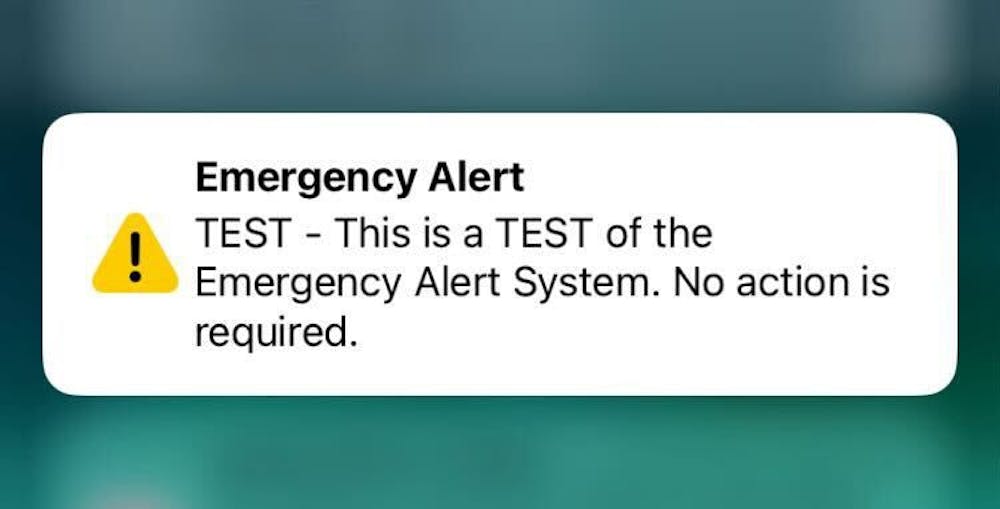A national emergency alert test will be broadcast to every radio and television station and sent to every cell phone at 2:20 p.m. Oct 4.
The Federal Emergency Management Agency will conduct this test in coordination with the Federal Communications Commission. The purpose of this test is to make sure that the EAS and WEA systems are still effective ways to warn the public about emergencies, especially those on the national scale, like natural or human-made disasters or threats to public safety.
The EAS portion of the test will be sent to radios and televisions and is scheduled to last for one minute. The message, which is like the monthly EAS test messages, will state:
“This is a nationwide test of the Emergency Alert System, issued by the Federal Emergency Management Agency, covering the United States from 14:20 to 14:50 hours ET. This is only a test. No action is required by the public.”
FEMA will administer the WEA test by sending a code to all consumer cell phones. This will be the third nationwide test but the second test to all cellular devices. Depending on the phone’s language settings, the test message will be displayed in English or Spanish. During the WEA test, every wireless phone should receive one message that will read, “THIS IS A TEST of the National Wireless Emergency Alert System. No action is needed.”
According to the release, cell towers will start broadcasting the test at 2:20 p.m. EST and it will last for 30 minutes. During this time frame, wireless phones that are WEA-compatible, switched on, in-range of an active cell tower and whose wireless provider participates in WEA should be able to receive the test message.
If a person is on a call when a WEA is sent out, the message will be delayed until they finish their call and are not impacted by network congestion according to the FEMA website. WEAs look like text messages but get viewers' attention with a unique sound and vibration that are repeated twice according to Ready.gov. Additionally, they will not interrupt texts, calls or data sessions that are in progress.
The WEA portion of the test, according to the release, will be initiated using FEMA’s Integrated Public Alert and Warning System. This system is a centralized system based on the internet that allows authorities to send emergency messages to the public through multiple communication networks.
Since 2016, the Integrated Public Alert and Warning system, which can include WEA and EAS, are required to do a nationwide test once every three years, according to FEMA. The last nationwide test happened in 2021. The first national WEA test happened in 2018 according to the Massachusetts Emergency Management Agency.
WAE alerts are sent to participating wireless providers, including AT&T, T-Mobile, USCellular, Verizon and dozens of regional providers according to CTIA. If a person is connected to a cell site that is not broadcasting the alert, they may not receive it according to FEMA. If the Oct. 4 test is postponed because of widespread severe weather or other significant events, a back-up testing date has been set for Oct. 11.






